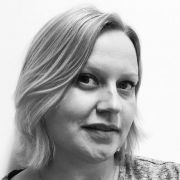Medical education is, broadly, how we educate physicians to care for patients. Sometimes it can be difficult to see this ultimate goal in our very busy everyday life. As I tend to my busy clinical and educational activities, I find myself stopping and reflecting upon my educational tasks. Am I truly working in the best interest of my faculty, learners and ultimately the patients we serve?
Do you ever stop and wonder why you are doing what you are doing in the hospital, in your office or in the lecture hall? A year ago, I sat in Trondheim, Norway, and thought about what a privilege – and responsibility – it was to teach undergraduate medical students and actively practicing physicians. I worried that I and other faculty didn´t make the best choices for teaching adult learners, and that we sometimes teach without a strong evidence base for our pedagogical choices. For a while I had also been thinking about how to give effective feedback on clinical skills to learners so that they grow into responsible clinicians for patients. I was at a crossroads in my own professional career and it felt that it was the time to search for answers to my questions.
I took a look at the Harvard Medical School´s website and read about the Master’s in Medical Education program. One sentence describing the goal of the program especially resonated with me:
“…through advancing medical education, we seek to advance science and its application to serve the ultimate goal of relieving human suffering.”
A year later I am here in Boston as a first-year student in the Master´s program, together with 11 other students from throughout the world working towards this ultimate goal. There are two main areas in which I hope to grow as a medical educator:
1) I have a strong interest in the formative assessment of clinical skills and feedback to learners. Giving feedback on clinical skills to medical students is very important for their development[1], and feedback should be tailored to the learner [2, 3]. Feedback is often given in a busy hospital setting, from faculty members who are removed from the student in age and experience, and who have little training in providing feedback [4]. As I hold a leadership role at my home institution – the Faculty of Medicine and Health Sciences at the Norwegian University of Science and Technology – I plan to focus my energies on becoming an expert in this area so that I may serve as a resource to both students and faculty.
2) In clinical practice, it is expected that we offer evidence-based treatment to patients. As medical educators we should hold ourselves to the same standard by critically appraising the literature and engaging in educational scholarship. One of the core components of the HMS Master´s in Medical Education program is a strong research curriculum in both quantitative and qualitative research. As part of this training I am designing my thesis project, which involves the development and supervision of a student-run formative OSCE with immediate peer-feedback. Although I have been a student only a few short months, the feedback I have received from my peers and instructors has been valuable. Looking ahead, I will attend the Harvard Macy Institute´s Program for Educators in Health Professions in January. I wholeheartedly look forward to collaborating further with my Harvard Macy colleagues and mentors, and welcome the feedback I will receive.
As I look back at the thoughts, worries and questions I had one year ago, I can see that I am already on my way to getting some answers. I am also very hopeful that my research and teaching will make an impact on the physicians I am helping to train, and their patients. That is my ultimate goal.
References:
- Rushton, A., Formative assessment: A key to deep learning? Med Teach, 2005. 27(6): p. 509-13.
- Lefroy, J., et al., Guidelines: The do's, don'ts and don't knows of feedback for clinical education. Perspect Med Educ, 2015. 4(6): p. 284-99.
- Eva, K.W., et al., Factors influencing responsiveness to feedback: on the interplay between fear, confidence, and reasoning processes. Adv Health Sci Educ Theory Pract, 2012. 17(1): p. 15-26.
- Anderson, P.A., Giving feedback on clinical skills: Are we starving our young? J Grad Med Educ, 2012. 4(2): p. 154-8.
Marie Thoresen MD

Marie Thoresen, MD, is a Medical Educator and Respiratory Physician practicing in Trondheim, Norway. Marie has worked as a university lecturer in Respiratory Diseases and has served as the project manager for OSCE implementation at the Faculty of Medicine and Health Sciences at the Norwegian University of Science and Technology (NTNU). She is a current student in the @HarvardMedEd Master’s in Medical Education program. Her main interests are feedback, assessment and curriculum design. Marie can be followed on Twitter (@marie_thoresen) and her e-mail is marie_thoresen@hms.harvard.edu.

